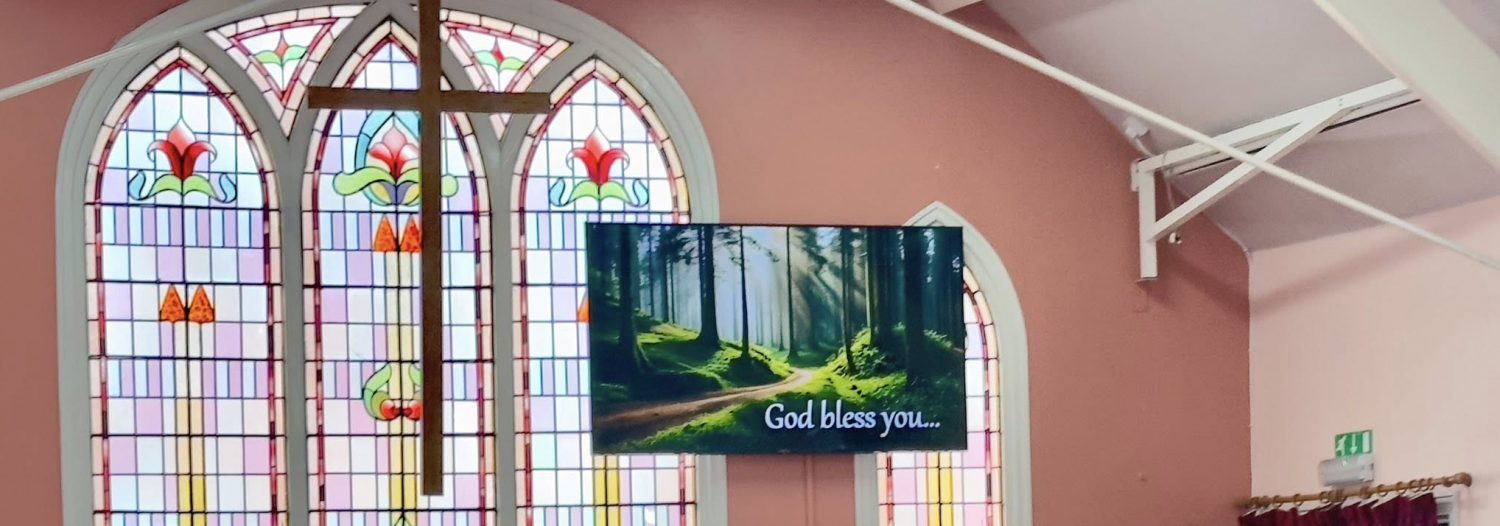Barry Blunt
| ADVENT HOPE Preached on 2nd December 07 Light and darkness: If I asked you to make a mental list of all the sources of light, my guess is that you would soon run out of space. You would probably start with the sun and the stars and the moon, and then discard the moon as you remember that it reflects the light of the sun, rather than generating its own light. Then there is the light generated by the earth that shows its self in volcanic eruptions and flashes of lightning. Electric lights, torches, neon lights, Christmas lights, firelight, candlelight – the list is endless. But now make a list of the sources of darkness. Where does darkness come from? That’s not so easy is it? All we can say is that darkness is the absence of light. At this time of year, as we move towards mid-winter’s day and daylight hours are reduced to a minimum, I usually find my thoughts turning to our ancestors, wondering how they coped. I try to imagine the stone age people, the hunter-gatherers, whose nomadic lifestyle brought them to Cradley from time to time where they made temporary encampments by the springs at Oldnall, hunted for food in what was then a thickly wooded area, before moving on leaving no trace of their being there other than loads of flint arrow-heads, scrapers and other crude tools. How would they have coped with the onset of winter? Is it any wonder that primitive people worshipped the sun? Warmth, daylight, new growth, renewed life were all given by the sun. They accepted the rhythm of the seasons, knowing that the sun, upon which their life depended, would soon begin to dispel the cold and darkness that held them in its icy grip.That, I think, is the context in which we should understand the writer of John’s gospel referring to God as the light that shines in the darkness and the darkness can never put it out. Just as the sun is always there, as darkness turns to daylight, as winter turns to spring, so too is God – as constant as the sun. Always there, never failing – the source of all goodness, all life, all hope of a better future. Advent Sunday is the day that Christians celebrate this hope of a better future. And that is why decorative lights play such an important part in those celebrations. Over 700 years before Jesus’ birth, prophets like Isaiah instilled hope into the nations life, by looking forward to the time when things would be different. It was as though they were living in permanent darkness, but God would do something decisive and rescue them from their plight. Nations would abandon their weapons of war and learn how to live peacefully together. “Come”, says the prophet, “let us walk in the light of the Lord.”Christians believe that Old Testament prophecy was fulfilled in Jesus. So each year, as we prepare ourselves to celebrate the coming of Christ into an unsuspecting and unprepared world, we also take the opportunity to reflect upon the wonders that God has in store for us. We call it the Advent Hope. Christ in the unexpected: Matthew was reflecting upon the widely held belief that Christ would physically return to earth and that would signal the beginning of the end-time, when God restores all creation into the way that God intended it to be. I have to say that for me, and I suspect for many modern day Christians, the second coming of Christ does not figure very highly in our expectations or our hopes for the future. We are content to make our creedal statement that “Christ has died, Christ is risen and Christ will come again” and leave it at that. After all, the gospel writers constantly tell us that no-one knows the day or the hour, neither the angels in heaven, or the Son, but only the Father. So we leave the speculation to others, and get on with the work that God has given to us. After all, there is a sense in which Christ has never left us, and we are encouraged to look for the presence of Christ in our neighbour and to see ourselves, the church, as the Body of Christ, the physical presence of Christ on earth.But when Matthew talks of Jesus coming at an unexpected hour, he is speaking to our condition, for it reminds us that we are also likely to encounter Christ at unexpected moments, in unexpected situations.So here we are, in a seemingly impossible situation. How on earth do we prepare ourselves for the unexpected?HIV/AIDS: The answer, I think, lies within the mission and ministry of Jesus himself. He was constantly found in situations that decent people wouldn’t touch with a barge pole. He mixed with undesirables, he feasted with sinners, he took uneducated working men and a tax collector to form his closest companions. He touched the lepers, the mentally ill, and the dead and allowed himself to be touched by a woman with menstrual problems and to have ointment lavished on him by a woman with a bad reputation. In short, his whole life was lived out in defiance of convention and the constraints placed upon society by its religion. So that means that we too can expect to find Christ in the unconventional people and situations of today.Let me give you an example of something that caught my attention as I was considering the issues surrounding World Aids Day.As most of you are aware, this church tries to give what support we can to our mission partner, Eileen McDonald, who is working with AIDS victims in South Africa. In her last letter to us she made an oblique reference to difficulties that AIDS workers are having with the South African government. Those difficulties relate to the fact that president Thabo Mbeki’s views on the disease are shaped by an obsession with race, the legacy of colonialism and sexual shame. As a result of these views, he blocked the distribution of anti-retroviral drugs in public hospitals because he believed that the drugs companies were overstating the link between HIV and AIDS in order to sell drugs. Yet 2 million people in South Africa have already died of AIDS and one in eight of the working age population is infected with HIV. This is the background in which Eileen McDonald and thousands of AIDS workers like her are trying to operate and often feel that they are losing the battle.To put it into perspective, it is estimated that across the world there are over 33 million people infected with HIV, of which 2.5 million are children. Surely, this must be one of the unexpected places that Christ can be found. His spirit is moving people like Eileen to take action to alleviate suffering, but he is also incarnate within those who are infected. The Body of Christ has got AIDS! And therein lies our Advent Hope, for whereas our reaction might be to run away from the danger of infection, Christ is still there, working and moving and trying to change the hearts and attitudes of those who have the power to rid the earth of this killer disease. Our situation today: Let me give you one final example of looking for God in unexpected situations, this time, much closer to home. A little over 12 months ago, our Leadership Team met up with David Alford, Diane and Elizabeth for the first time. David had been appointed to our circuit as a probationer minister and we were all struck by his enthusiasm to get started here, to make a difference, and his conviction that this is the place that God intended him to be. Well, as we know, things didn’t quite work out as planned. His ministry among has taken on a stop start nature owing to his illness and frequent spells in hospital. At the end of October I had to call the Leadership Team together to reschedule a meeting, as David was once more in hospital. I asked the team members to reflect upon what God might be trying to say to us through this unexpected turn of events. Well, my own reflections have led me to an even stronger conviction that God does not intend leadership to be vested in one person, but that it is a shared responsibility. That the strength of the church lies in the ability of all its members to take care of one another and to value the contribution that each member makes. We saw it last week in the way that the younger members took responsibility for organising the Christmas Fair, and the way that new people came forward and threw themselves willingly into the work. We are all praying that David will return to us this week fit and well and able to carry out his distinctive ministry among us without any further interruptions. Once more, God has demonstrated that he is able to work out his purposes through the most unpromising and unexpected situations. Conclusion: I invite you to use this period of Advent to look for the presence of Christ in the unexpected in the world today. Although there are still “wars and rumours of wars” we have not been abandoned. God never gives up on us. We worship the God who comes to his people, the God who rescues, the God who redeems. We must recognise and give thanks for those situations where God’s will is being done; we must keep awake and work with renewed vigour for a just and peaceful world. AMEN by Barry Blunt © 2007 |

